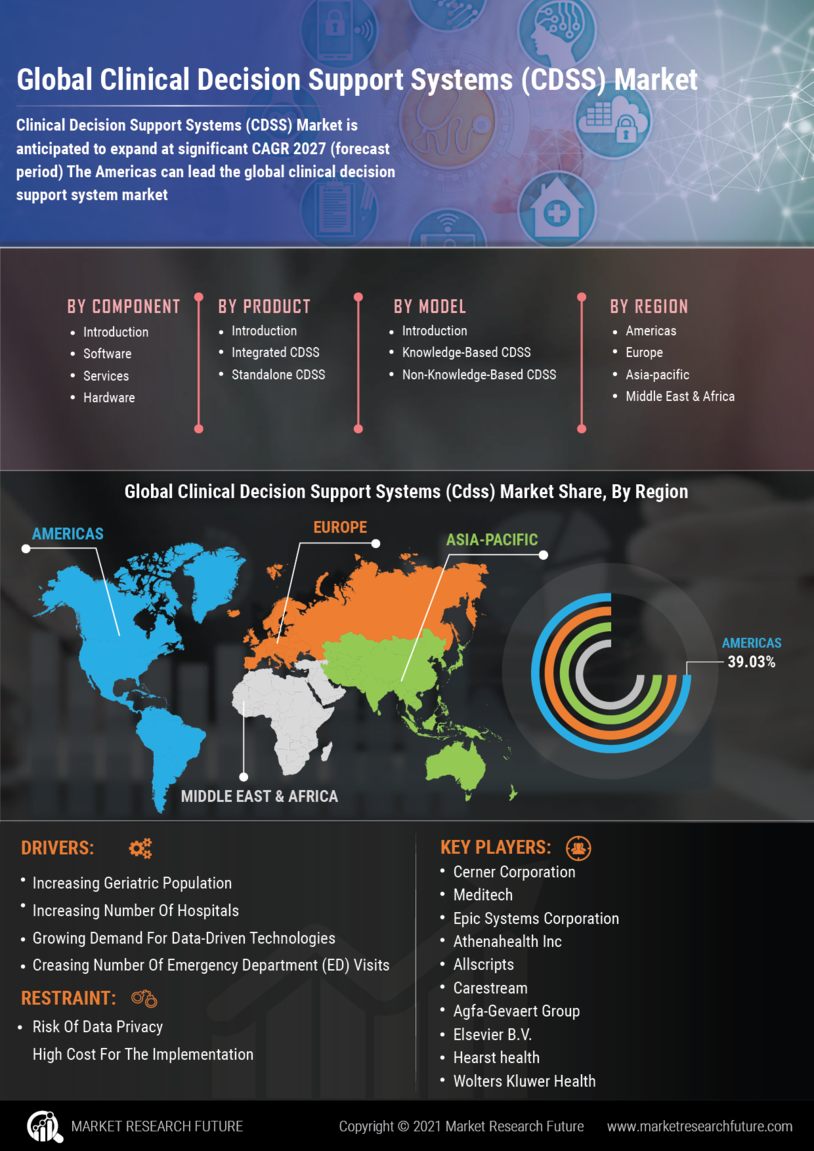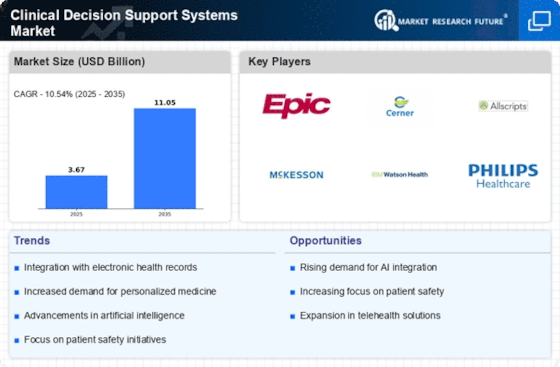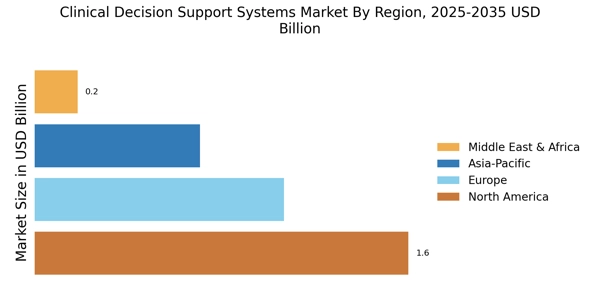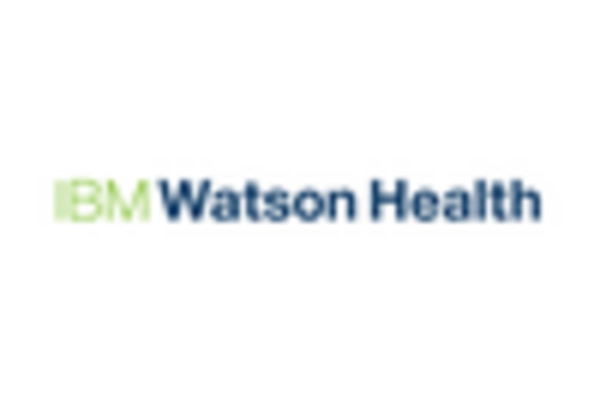Rising Demand for Personalized Medicine
The Clinical Decision Support Systems Market is experiencing a notable surge in demand for personalized medicine. This trend is driven by the increasing recognition of the need for tailored treatment plans that cater to individual patient characteristics. As healthcare providers strive to enhance patient outcomes, the integration of clinical decision support systems becomes essential. These systems facilitate the analysis of vast amounts of patient data, enabling clinicians to make informed decisions based on specific patient profiles. According to recent estimates, the personalized medicine market is projected to reach substantial figures, further propelling the adoption of clinical decision support systems. This shift towards personalized approaches not only improves treatment efficacy but also aligns with the broader goals of precision medicine, thereby reinforcing the relevance of clinical decision support systems in contemporary healthcare.
Advancements in Health Information Technology
The Clinical Decision Support Systems Market is significantly influenced by advancements in health information technology. The proliferation of electronic health records (EHRs) and health information exchanges (HIEs) has created a fertile ground for the implementation of clinical decision support systems. These technologies enable seamless data sharing and integration, which are crucial for effective decision-making in clinical settings. As healthcare organizations increasingly adopt EHRs, the demand for clinical decision support systems is expected to rise correspondingly. Reports indicate that the health IT market is on an upward trajectory, with investments in digital health solutions reaching impressive levels. This trend underscores the importance of clinical decision support systems in enhancing the quality of care and operational efficiency within healthcare institutions.
Increased Investment in Healthcare Infrastructure
The Clinical Decision Support Systems Market is benefiting from increased investment in healthcare infrastructure. Governments and private entities are channeling resources into enhancing healthcare facilities and adopting advanced technologies. This influx of capital is facilitating the integration of clinical decision support systems into healthcare workflows. As healthcare systems evolve, the need for efficient decision-making tools becomes paramount. Investments in infrastructure are expected to drive the demand for clinical decision support systems, as these tools are essential for optimizing clinical processes and improving patient outcomes. Recent data indicates that healthcare spending is on the rise, with a significant portion allocated to technology adoption. This trend suggests a promising future for clinical decision support systems as they become integral components of modern healthcare infrastructure.
Growing Focus on Patient Safety and Quality of Care
The Clinical Decision Support Systems Market is witnessing a growing focus on patient safety and quality of care. Healthcare providers are increasingly prioritizing initiatives aimed at reducing medical errors and improving clinical outcomes. Clinical decision support systems play a pivotal role in this context by providing real-time alerts and evidence-based recommendations to clinicians. This proactive approach not only enhances patient safety but also contributes to the overall quality of care delivered. Data suggests that healthcare organizations implementing these systems have reported a decrease in adverse events and improved patient satisfaction scores. As the emphasis on quality care intensifies, the adoption of clinical decision support systems is likely to become more prevalent, further solidifying their position in the healthcare landscape.
Regulatory Initiatives Promoting Technology Adoption
The Clinical Decision Support Systems Market is influenced by regulatory initiatives that promote the adoption of technology in healthcare. Governments and regulatory bodies are increasingly recognizing the importance of clinical decision support systems in enhancing healthcare delivery. Initiatives aimed at incentivizing the use of these systems are emerging, as they are seen as vital tools for improving patient care and operational efficiency. For instance, certain regulations may provide financial incentives for healthcare providers who implement clinical decision support systems effectively. This regulatory support is likely to accelerate the integration of these systems into clinical practice, fostering an environment conducive to innovation. As regulatory frameworks evolve, the clinical decision support systems market is expected to expand, driven by the alignment of policy objectives with technological advancements.

















